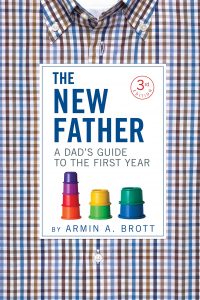 I cannot decide whether it’s weirder to be reading non-fiction, or to be reading a book gradually over the course of a year. Both are pretty weird! Like, maybe histories would be less weird? History is just non-fiction with a plot and a throughline. Although I guess a book about what to expect over the course of a year of childhood growth is almost that too? But histories have characters, which this does not, super-disgusting anecdotes about mistaken pumpkin puree notwithstanding.
I cannot decide whether it’s weirder to be reading non-fiction, or to be reading a book gradually over the course of a year. Both are pretty weird! Like, maybe histories would be less weird? History is just non-fiction with a plot and a throughline. Although I guess a book about what to expect over the course of a year of childhood growth is almost that too? But histories have characters, which this does not, super-disgusting anecdotes about mistaken pumpkin puree notwithstanding.
As you may have guessed by this point in the review, my son is nearing a year old. And thusly I have been reading on a (mostly) month ahead basis, the first of Armin Brott’s New Father trilogy(?), wherein I learn what to do over the course of a year.
You are now asking yourself two questions. And the answer to the first is that it’s a helpful book in the same ways that the pregnancy book was. Not quite as helpful, and my uninformed speculation from a non-female perspective as to why is that there are more different types of kids than there are types of pregnancies. Or maybe I’m just more invested in how closely he hews to the baby averages than I was in how closely we hewed to the pregnancy averages? Also feasible.
The answer to the second question is that I have done at best a mediocre job following the presented advice. I’m about as bad at money with him as I am at money with me. We play, but I never really wrestle with him, which came up a lot in the book? I don’t really understand how to wrestle with someone that small, to be honest. I feel like he’s been consistently months ahead on the physical scale[1] and on the manipulation scale[2], but maybe farther behind than I want him to be on the verbal scale? Like, this “you’ve made it through a year” chapter I just read, which to be fair is still four weeks away, expects him to be able to point at his body parts when we tell him to, and I’m not sure I’ve ever tried to get him to know all his body parts before reading that. Which as we all know means I’m objectively a bad father. He might be able to say two words by now, but then again maybe not, and is expected to have a six plus word vocabulary in the aforementioned four weeks. Maybe he will! Or maybe I’m, again, objectively bad at this.
I’m 95% not serious about my reactions, but this also goes back to my “more invested” thing from before. Because the goal of the pregnancy book was to end up with a baby, which is pretty much a binary outcome. Whereas the goal of this book (and the subsequent ones I presume) is to make the existing infant into a good human who can successfully navigate the world. That is, uh, non-binary, you know? It is open-ended. Which means that yeah, any moment where he’s not on target or better is a moment for me to feel bad about myself. So that’s great.
For no fault of the book’s own, I’m not sure whether I want the sequel. Probably should, though? It is almost certainly better to use and resent the map than to kick it in the creek.[3]
[1] Rolling over, standing, walking, etc. Gross body movements. (As opposed to fine.)
[2] Ha ha, but no. Here I mean fine body movements (as opposed to gross), like unscrewing lids, putting objects in holes, etc.
[3] I’ve made myself sad, as that reference was more or less for one person, who isn’t alive to see it. Or the kid.
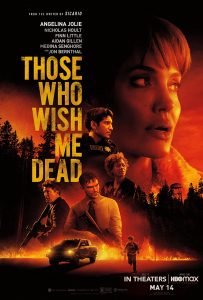 Warner Bros.’ simultaneous release schedule between theaters and HBOMax is good for seeing new movies and not getting Covid, as everyone knows. But what you may not know is that it’s also good for seeing movies that you would have never quite convinced yourself to make it to the theater to see, and then have forgotten to look for by the time they finally released to a streaming service.
Warner Bros.’ simultaneous release schedule between theaters and HBOMax is good for seeing new movies and not getting Covid, as everyone knows. But what you may not know is that it’s also good for seeing movies that you would have never quite convinced yourself to make it to the theater to see, and then have forgotten to look for by the time they finally released to a streaming service.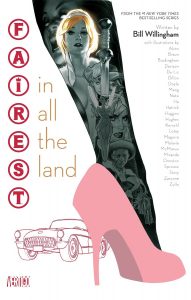
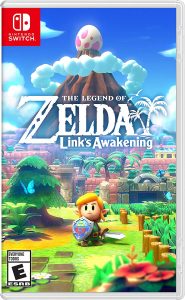 Two milestones! Surprisingly to me, I’ve never finished a Switch game before. Like, I kind of finished the Mario game from one perspective, but from another I was barely halfway through it. Regardless, no review! So, oops. (Or not. It’s hard to know.) But also, I’ve never played a game that required specifying a year for version control.
Two milestones! Surprisingly to me, I’ve never finished a Switch game before. Like, I kind of finished the Mario game from one perspective, but from another I was barely halfway through it. Regardless, no review! So, oops. (Or not. It’s hard to know.) But also, I’ve never played a game that required specifying a year for version control. 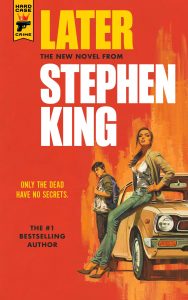 Cart before the horse time: surprise! I liked the new Stephen King book.
Cart before the horse time: surprise! I liked the new Stephen King book.